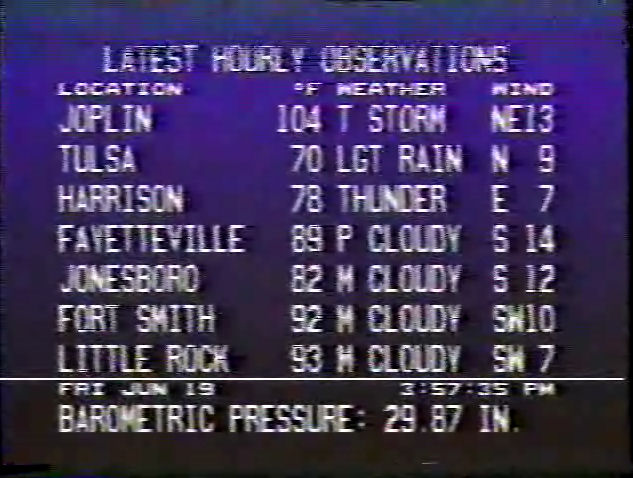 WARP!1 has engines, I’m just loading the last few bits of dilithium in them.
WARP!1 has engines, I’m just loading the last few bits of dilithium in them.
Well, okay, that’s rather a glib way of putting it. My third book is very much in the same “extensive critical guide to a TV series” wheelhouse as the first two books, but to be totally honest with you… this is my favorite. It’s been my favorite to work on, and my favorite to go back weeks/months later and re-read bits of.
WARP!1 examines the “Roddenberry era” of Star Trek in depth: the original Star Trek, the animated series, the original cast movies, The Next Generation, and the Next Generation movies. It examines Roddenberry’s non-Trek work from the same period, namely his string of 1970s TV projects that never got past the pilot stage. It examines how others have taken the Original Series and reinterpreted it, reviewing the J.J. Abrams movies to date and a cross-section of the better fan-made series to date. It also examines Star Trek’s immediate antecedent, Roddenberry’s single-season series The Lieutenant, both on its own merits and in light of what came later.
I’ve re-watched everything for this book. Even stuff I disliked the first time around. I went in to challenge my own assumptions and some of fandom’s as well: were the good episodes as good as they’re given credit for being? Were the bad ones really that bad? Have any of the stories accumulated more meaning than they had upon their first airing? Have any of them not aged well?
In a way, WARP!1 is also a fiercely political book. It takes the stated ideals of the Star Trek universe – and of its creator – and holds these stories’ feet to the fire to see if they’re “on message” or if they betray those ideals. Were these iterations of Star Trek as forward-looking as they’re often said to be, or were they unintentionally (and occasionally blatantly) sexist or racist? Is Star Trek’s future really utopian at all, or does it have worrying undertones that show themselves only briefly? This aspect of the book might challenge your long-held views of the show and its universe, and it may piss a few people off. I’m not a big fan of “received wisdom”, so I do enjoy kicking over an apple cart or two here and there…
Several times as I’ve worked on it, I’ve had some doubts about whether or not this book has a reason to exist at the same time that we’re getting things like Marc Cushman’s “These Are The Voyages” books. A handful of friends who have proofread bits and pieces of the book for me have reassured me that there’s nothing to worry about. WARP!1 is not attempting to be a definitive history. Instead, it’s attempting to be a serious literary critique of the full body of work, episode by episode, taking cultural influences and contemporary history into account, as well as the realities of television production and the politics of television networks, syndication and distribution (a topic in which I have a wee bit of experience, as Scotty might say).
Even I’ve been surprised by some of what I’ve found betweent the lines of shows I’ve seen a dozen times before. Maybe you will be too.
 The book should be finished at the end of this month, at the proofing stage in May, and will definitely be ready before GlitchCon and Konsplosion this year. (I have a very tantalizing job prospect coming up in May, so in a way, WARP!1 has a very hard deadline now, and the race is on.)
The book should be finished at the end of this month, at the proofing stage in May, and will definitely be ready before GlitchCon and Konsplosion this year. (I have a very tantalizing job prospect coming up in May, so in a way, WARP!1 has a very hard deadline now, and the race is on.)
I’m really jazzed about this book. If there’s even a smidgeon of you that likes Star Trek (I have my doubts as to whether you’d be within a million miles of my site if you didn’t), I think you’re gonna dig this.
The follow-up, WARP!2, is already in the works; while WARP!1 meanders from Star Trek from time to time as it examines Gene Roddenberry’s mindset and style, WARP!2 will be staying on the final frontier, examining the three TV spinoffs that arrived after Roddenberry’s death (DS9, Enterprise, Voyager). It might be out in 2016 to coincide with the 50th anniversary of Star Trek, or it might not. (I have two children now, and I can’t claim writing books as my “day job” just yet, so hard deadlines on self-generated projects tend to ebb and flow and undulate like the Great Link itself.)
Where future volumes of the VWORP! series (which covers Doctor Who in the same format as the WARP! books covering Star Trek) will deal with such external media as audio dramas and novels, I’m currently making no plans for the WARP! series to venture beyond TV. The Doctor Who “expanded universe” is much more integrated into the whole, whereas the Star Trek novels have always been kept at arm’s length from the core television/film material. And in any case, there’s already a nicely-compiled overview of Star Trek print fiction in the form of Jeff Ayers’ book “Voyages Of Imagination: The Star Trek Fiction Companion”. When WARP!2 is done, however, the result should be an exhaustively cross-referenced guide to the Star Trek universe on film, something that just doesn’t exist in print right now. (I always say that the books I write, and the podcasts I produce, and indeed my web site as a whole, are things that I set about creating only because no one else had published the book I wanted to read, the podcast I wanted to hear, or the web site I wanted to browse.)
Stay tuned, as always. WARP!1 will likely be a big book, on a par with the 500+ page VWORP!2, so expect a similar price tag (in the vicinity of $25). An ebook will be available simultaneously; I’ve also toyed with the idea of an audio presentation of WARP!1, with each episode’s essay presented in a short-form chunk not entirely unlike the Escape Pod podcast. Missing from the audio format, however, would be the cast and credit listings; they’d really be a companion piece to the book in print/electronic form. Other than that, it would be an unabridged reading in bite-sized chunks. I’m not entirely certain this will happen, but it is being given serious consideration.


+ There are no comments
Add yours